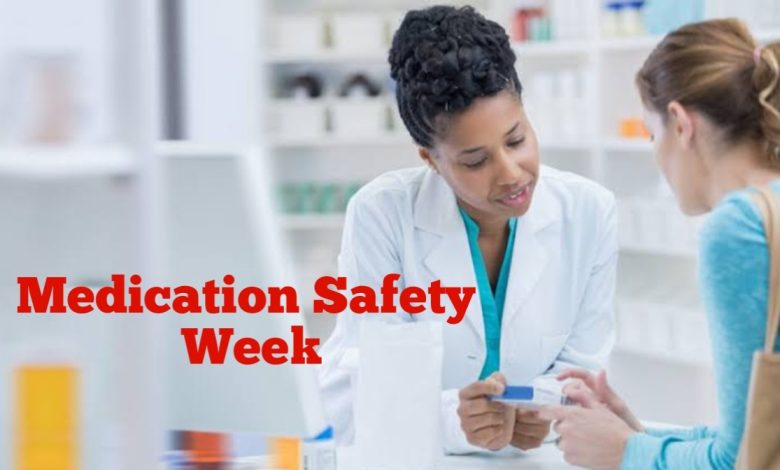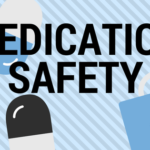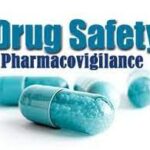Med Safety Week

Unsafe medication practices and medication errors are a leading cause of injury and avoidable harm in healthcare systems across the world. Globally, the cost associated with medication errors has been estimated at $42 billion USD annually. Errors can occur at different stages of the medication use process. Medication errors occur when weak medication systems and/or human factors such as fatigue, poor environmental conditions, or staff shortages affect prescribing, transcribing, dispensing, administration, and monitoring practices, which can then result in severe harm, disability, and even death.
Through international collaborations, global health organizations promote the global safety of medical products by establishing worldwide pharmacovigilance standards and systems, and coordinating global networks for monitoring, assessing, and preventing adverse drug reactions (ADRs) or any other medicine-related problems.
Countries rely on effective ADRs reporting systems to make sure medicines on the market are acceptably safe. Unfortunately, all reporting systems suffer from underreporting.
Med Safety Week
The #MedSafetyWeek is an international social media campaign organized every year by the Uppsala Monitoring Centre to raise awareness of ADRs and national reporting systems. The campaign usually takes place in November each year.
In the United States, the Medication Safety Week is observed from April 1 to 7. This week-long event serves as a reminder that we must be more cautious about how we use and store our medications, as medication errors are the sixth leading cause of death. It’s important to know what you’re taking, how to take it correctly, and when to discard it. Medication Safety Week strives to educate both health professionals and consumers in order to reduce the risk of patient harm. Understanding how certain pharmaceuticals interact with other drugs, foods, and supplements is part of Medication Safety Week.
History Of Medication Safety Week In the U.S
From prehistoric times to the present day, the history of medicine demonstrates civilizations’ attitudes toward illness and disease have evolved. Early medical traditions can be found in Babylon, China, Egypt, and India. The ‘Hippocratic Oath,’ which was composed in ancient Greece in the 5th century B.C., is a direct inspiration for the oaths of office that physicians take today. Around 1220 A.D., universities in Italy began systematically training physicians. In the 19th century, rapid urbanization demanded the creation of public health measures.
In the early 20th century, advanced research institutions arose, often in collaboration with large hospitals. Antibiotics and other new biological treatments dominated the mid-20th century. Regardless of medical advances, the importance of medication safety cannot be overstated. The Institute for Safe Medication Practice (I.S.M.P.) was founded in 1957, and it began its work in 1975 by publishing a continuing section on medication safety in hospital pharmacies.
By 1981, I.S.M.P. co-founders Michael Cohen and Neil Davis had published “Medication Errors: Causes and Prevention,” a comprehensive treatise on the causes and prevention of drug errors.
Medication Safety Week was established by the U.S. Department of Health and Human Services. It strives to raise medication safety awareness among health professionals and consumers in order to limit the risk of injury by ensuring that medicines are used safely and effectively. Government agencies across the country hold seminars to further educate their communities on how to use prescription drugs safely.
How To Observe Medication Safety Week
1. Make a list of your medication
Write out a list of all the medications or supplements you’re taking right now, and why you’re taking them. Each prescription should have both a generic and a brand name. This is a great way to keep track of your medicines so you know when and how to take them. The list will also help you during emergencies and if a doctor requires information about your current medicines.
2. Store your medication properly
All drugs should be kept in their original containers in a cool, dry location. Properly dispose of all expired drugs. Most pharmacies will accept your old medications and dispose of them properly. By doing so, you will be reducing the risk of taking expired medication in an environmentally-free manner.
3. Read all medication labels
Read the labels of medication in your home carefully to ensure that you are taking them according to your physician’s directions. Also read the information that comes with your prescription to understand why you’re taking this medicine, as well as the risks, benefits, and possible adverse effects.





